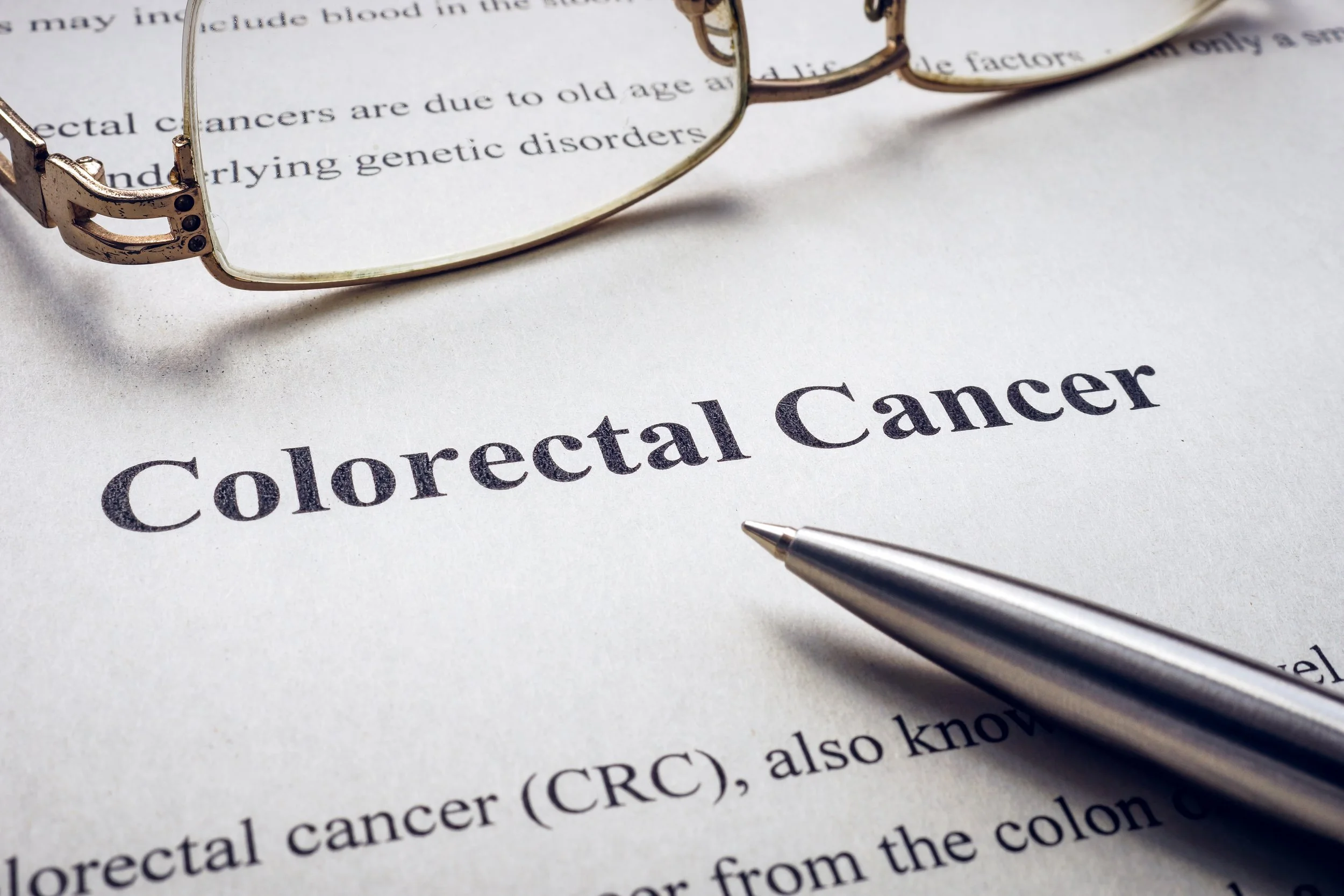Learn about the key risk factors for colorectal cancer and how to reduce your chances of developing this common disease. Discover expert care at Tampa Bay Colorectal Surgery for screenings, prevention, and treatment.
Common Signs & Symptoms Of Colorectal Cancer
Colorectal cancer does not always cause symptoms right away, and for this reason it often goes undetected for long periods of times. If it does show, these are some common colorectal cancer symptoms to look for:
Risk Factors for Colorectal Cancer
Are You At Risk? Make Sure You’re Aware of These 8 Risk Factors For Colon Cancer
Are you at risk for colon cancer? Even if your risk factors are not hereditary, it's important to be aware of what risk factors can affect your chances. The risk of developing this disease is higher for people who have risk factors such as age, gender, and other health concerns. There are also risk factors that we can control like diet, exercise habits, smoking. Let's take a closer look at the risk factors for colon cancer.
Hemorrhoids Or Something Else? Understanding Hemorrhoid Symptoms vs Related Conditions
In the field of medicine, it’s often taken for granted how common some conditions are, while others are much rarer in presentation. While you and your doctor may want to assume that anal itching and bleeding after a bowel movement is simply caused by hemorrhoids, it would be a disservice to not address other potential conditions. The likelihood may be lower, but patients should know what to look for.
The Difference Between Colon Cancer & Anal Cancer
Colon cancer and anal cancer might sound, at first, like they are nearly identical; however, these diseases have totally different causes, presentation, and symptoms. Simply put, anal cancer and colon cancer are as different as skin cancer and cervical cancer. In fact, the anus is structurally different tissue than that of the colon; this is only where the distinctions begin.
Understanding Your Colorectal Cancer Screening Options
The most important thing to remember with colon cancer is that early detection can mean all the difference for effective treatment and even prevention. Thankfully, there are a few colorectal cancer screening options you can choose from to make sure you stay healthy.
How Big Of A Role Does Genetics Play In Colorectal Cancer Risk?
The American Cancer Society estimates that about 1 in 21 men and 1 in 23 women in the United States will develop colorectal cancer at some point in their lifetime. Knowing your family’s history is an especially important factor in early detection for many cancers, especially colorectal cancer. When it comes to colorectal cancer, your genetics play a huge role in determining whether you might be at a higher risk of developing the condition. In this article, we will discuss the genetic predisposition for colon cancer, including how to know if you have a gene for hereditary colon cancer.
5 Conditions Treated At The Colorectal Clinic Of Tampa Bay
When it comes to selecting the right colorectal clinic, you should select not only a team of colorectal specialists with experience, you should choose a team of colorectal specialists with extensive experience on a wide array of colorectal issues. The colorectal specialists at the Colorectal Clinic of Tampa Bay are dedicated to treating a myriad of different colorectal issues. Here are five conditions we treat at Tampa Colorectal.
DIY Stool Tests For Colon Cancer
As the third leading cause of cancer-related death in the United States, colorectal cancer is a serious health issue. Luckily, 60% of colon cancer deaths are preventable by early detection and regular screening. Learn how you can make testing easy with DIY stool tests for colon cancer that you can take at home.
Colon Cancer vs Colorectal Cancer vs Rectal Cancer: What’s the Difference?
You may have heard the terms colorectal, colon, and rectal cancer before. While the terms are often used interchangeably, there are some key differences between these cancers. In this article, we will examine colorectal cancer, colon cancer, and rectal cancer, and describe the key similarities and differences of each.
Treating Colorectal Cancer
Colorectal cancer is the third most diagnosed cancer in both men and women in America. The American Cancer Society estimates that there will be nearly 150,000 new cases of colorectal cancer diagnosed in 2019. It’s also expected to cause over 50,000 deaths this year. When it comes to treating colorectal cancer, you have options. Let’s take a look at the different methods of treatment available for colorectal cancer vary by stage and how each works.
Colorectal Cancer Screening 101: Everything You Need to Know
Screening for colorectal cancer is the best way to detect and treat the disease earlier than it may have been caught otherwise. Colorectal cancer screening is used to look for the disease when a person is not showing any symptoms, but may fit the criteria of people who are prone to getting a particular disease, whether the factor is age, family history, or something else. We’ll take a look at the ins and outs of colorectal cancer screening, including who should get screened, the types of screening tests used, and what happens during your screening.
Colorectal Cancer Awareness Month: What It's All About
March is Colorectal Cancer Awareness Month. Each year the Colorectal Cancer Alliance picks a theme to help drive awareness about symptoms, diagnosis, and treatment of colorectal cancer. This year’s theme is “Don’t Assume,” which aims to bust the preconceived notions and misconceptions regarding colorectal cancer. Below, we’ll discuss what colorectal cancer is, how it’s treated, and how the Don’t Assume campaign wants to bust myths about colorectal cancer.
5 Tips For Coping With A Colorectal Cancer Diagnosis
Being diagnosed with colorectal cancer can leaving you feeling uncertain and overwhelmed. You’re in and out of doctors’ offices, undergoing regular—and sometimes uncomfortable—treatments, all while learning about the disease and its effects. When it comes to treating not just the cancer, but the uncomfortable or painful symptoms and byproducts of the disease, there’s hope. Below, we’ll share five tips for anyone wondering how to cope with colorectal cancer.















